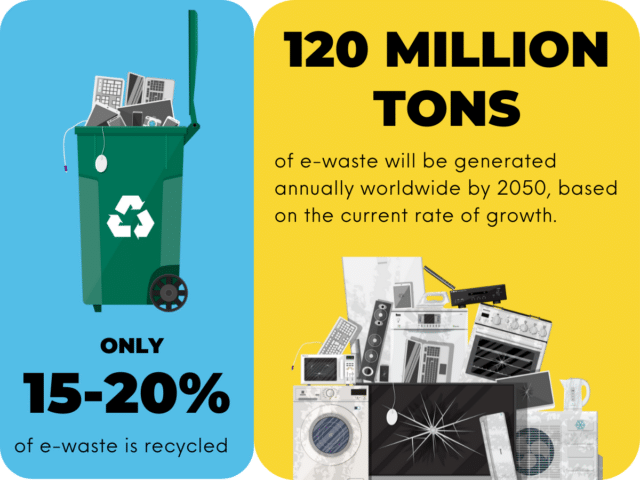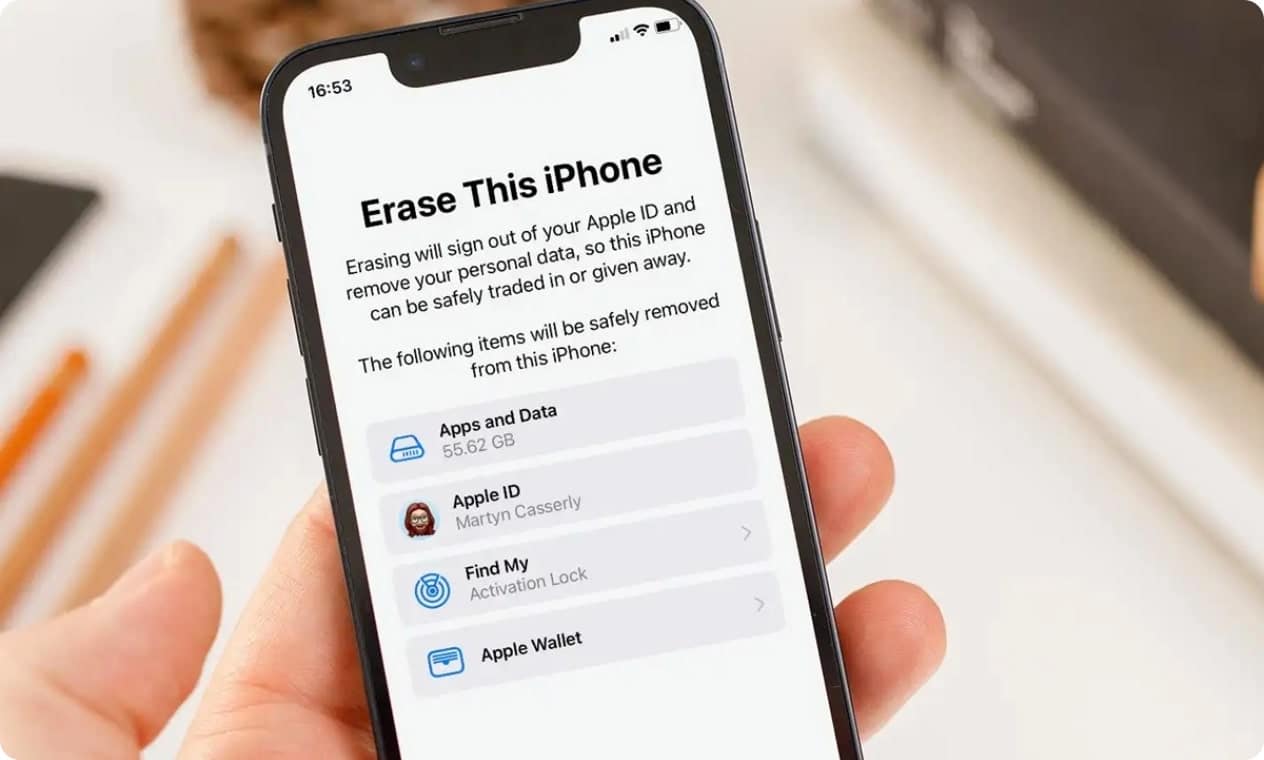How to Dispose of Old Electronics
Sorting through your home and discovering outdated electronics? Check out our guide on safely disposing of them.
Then Give Us a Call for a Quote!
Why is E-Waste Important?
E-waste, or electronic waste, is a major issue in our digital age. With the growing number of tech gadgets, the volume of electronic waste is also rising. The environmental impact of e-waste is considerable and needs attention. In this guide, we will explore what e-waste is and, most importantly, how to dispose of it properly and sustainably

Understanding E-Waste
E-waste encompasses any discarded electronic device, from smartphones and laptops to TVs and kitchen gadgets. As technology rapidly advances, devices become obsolete quickly. Consider how many outdated smartphones you've replaced over the years. According to the Global E-waste Monitor 2020, the world produced 53.6 million metric tons of e-waste in 2019, with projections estimating it will rise to 74.7 million metric tons by 2030.
One significant issue with e-waste is the presence of toxic materials. These devices often contain hazardous substances like lead, mercury, cadmium, arsenic, and flame retardants. Improper disposal can lead to severe environmental and health consequences. When e-waste is incinerated or dumped in landfills, it can contaminate soil, groundwater, and air, posing risks to local ecosystems and human health. Additionally, unregulated e-waste processing exposes workers to these harmful substances, causing serious health problems.
A report by the Global E-waste Statistics Partnership highlighted that only 17.4% of global e-waste was properly recycled in 2019. This leaves a significant amount of e-waste improperly disposed of, contributing to environmental degradation and health hazards.
Why Is It Important To Dispose of E-Waste Sustainably?
E-waste poses a significant environmental threat due to the toxic materials it contains, such as lead, mercury, and cadmium. When discarded improperly, these substances can harm the environment and human health, causing issues such as cardiovascular and respiratory diseases.
Moreover, e-waste contributes to greenhouse gas emissions. A study by the United Nations University indicates that the incineration of electronic devices releases substantial amounts of greenhouse gases. Between 2014 and 2019, emissions from e-waste increased by 21%. In 2019 alone, 50 million metric tons of e-waste generated an estimated 70 million metric tons of carbon dioxide equivalent emissions.
Proper disposal and recycling of e-waste are crucial to mitigating these impacts and protecting both the environment and public health.

Erase Before Recycling!
Yes, it's essential to remove personal data from devices before recycling them to prevent potential misuse of your information. Follow these steps to ensure your data is securely erased:
- Back-Up Important Data: Save any files or data you wish to keep to an external storage device or cloud service.
- Use Data Destruction Software: Employ software designed to wipe data from your device completely.
- Perform a Factory Reset: Reset the device to its factory settings to clear all personal data from the internal storage.
- Physically Destroy the Hard Drive: If possible, physically destroy the hard drive for added security.
By taking these precautions, you can safely dispose of your e-waste without compromising your personal information.
How to Dispose of Old Electronics
If you’re tackling a home cleanout or junk removal project that involves electronics, renting a residential dumpster could be your most convenient disposal option. However, be aware that some cities and states have restrictions or additional fees for disposing of e-waste in landfills. For more information on e-waste disposal regulations in your area, feel free to give us a call. The benefits of renting a dumpster include: Hiring a junk removal service can be a convenient way to dispose of e-waste, but the cost-effectiveness depends on the amount you need to discard. While some services offer pricing per individual item, most charge based on the space your items occupy in their truck, often with a minimum charge for 1/8th of the truck’s capacity. If you decide that a junk removal service is right for you, remember that it typically involves: By understanding these factors, you can better decide if a junk removal service suits your needs for e-waste disposal. If your city provides bulky item pickup services, you may be able to dispose of electronics curbside. However, it’s important to note that each city has its own set of rules and regulations regarding acceptable items. Before placing your e-waste at the curb, contact your local government via phone or visit their website to verify whether they accept old electronics. Additionally, inquire about common restrictions such as: Electronics might be classified as hazardous waste in your city or state due to the presence of materials like mercury. Currently, 19 states, along with Washington, D.C., have prohibited e-waste from being disposed of in landfills. Consequently, many cities organize special e-waste collection days periodically throughout the year. To locate drop-off points for electronics at upcoming collection events, contact your local government via phone or visit their website. You may also want to inquire about standard regulations, including: Recycling e-waste is vital for environmental sustainability and resource conservation. Electronic devices often contain valuable materials such as metals, plastics, and glass that can be recovered and reused in the manufacturing of new products. Additionally, recycling helps prevent hazardous substances like lead, mercury, and cadmium from leaching into the environment, safeguarding both human health and ecosystems. By responsibly recycling e-waste, we reduce the strain on natural resources, mitigate pollution, and contribute to a circular economy where materials are continuously reused and recycled. Check the following options for e-waste recycling: Donating functional electronics not only prevents them from ending up in landfills but also can significantly impact someone in need. Reach out to your nearby charity, homeless shelter, or non-profit organization to inquire about their donation policies. Alternatively, you can explore these national donation centers: If your devices are still functional, consider selling them to earn some additional cash. Below is a helpful list of platforms to explore when seeking opportunities to sell your electronics:
Have any additional Questions?
Call us today and we would be happy to walk you through the rental process.
